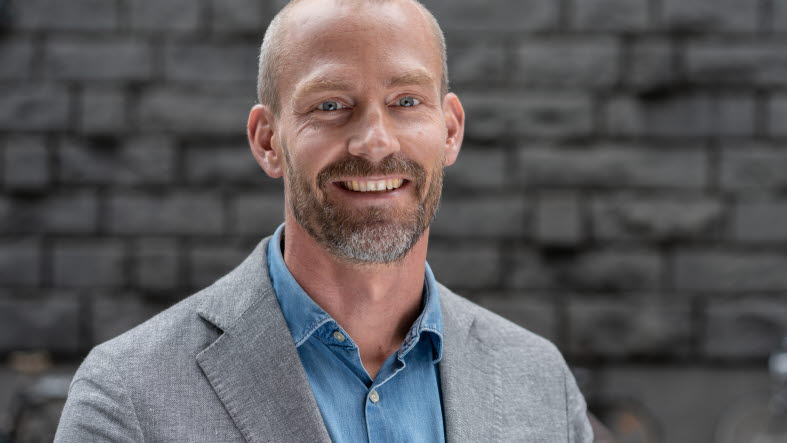SEB’s unique network provides significant opportunities to really make a difference to the growth of sustainable and climate-neutral companies. This is the opinion of Markus Hökfelt, who has just been appointed head of SEB Greentech VC – a newly-created unit that invests in sustainable companies. “But only companies that are economically sustainable, that is commercially viable, can make a difference and are of interest to us,” says Hökfelt.
It was last November that Markus Hökfelt was appointed head of SEB Greentech VC. The two last letters of the name stand for Venture Capital and describe the nature of the business rather well.
“We invest in new companies with leading-edge technology where we can see a clear economic potential. But as the name indicates, we only invest in sustainable companies,” says Hökfelt, who explains that it was after careful deliberation and many discussions with people in leading positions in the bank that he ended up deciding to accept the offer to be head of the newly-started unit SEB Greentech VC.
“With SEB’s large network, not least internationally, I saw that there were significant opportunities to really make a difference,” says Hökfelt, who thinks that it is actually natural for SEB to take this step.
“The bank is already well advanced with, for example, green mortgages and green bonds. Furthermore, the transition to a more sustainable business community will over time affect all companies, many of which are SEB’s customers. The more prominent position we have as a bank in this area, the better access our customer companies get to new technology,” he says.
Sustainability by chance
Although Markus Hökfelt has many qualifications in investment and sustainability, he says himself that it was mainly by chance that his professional career took this direction.
“Yes, it really was not a conscious choice. But when I was a consultant fresh out of university, I was involved in an energy project focused on sustainability and that’s how it happened,” says Hökfelt, who has a engineering university education combined with economics and management.
“So I am not a “proper” engineer, but just this mix of courses has in fact suited me very well,” he says.
For many years Hökfelt was with the energy company Fortum where he led several internal start-ups the focus of which included solar energy and technology for charging electric cars. In parallel he also managed to start his own company in the energy sector before becoming a fund manager at Almi Invest Greentech in 2017.
“This was a newly-started fund focused on environmental technology companies,” says Hökfelt, who thinks that Almi Invest Greentech actually has a lot in common with SEB Greentech VC.
“In both cases it is about investing in companies that reduce greenhouse gas emissions. One difference, however, is that at SEB we go into companies at a somewhat later stage and that we have more freedom to take a lead-investor role.”
So what do you look for when choosing companies for SEB Greentech VC to invest in?
“Among other things that the company has a team of founders who are unrelenting in achieving their aims. Then they must, of course, have a technology that can be commercially viable and reduces greenhouse gases or other environmentally hazardous emissions. The company must also have made significant progress,” says Hökfelt, who explains that investments are made just before a company goes commercial.
“It is often when operations are scaled up that the need for new capital is greatest,” he says, and thinks that in general development cycles are longer for companies developing new sustainable technology which makes timing entry to the companies particularly important.
Even if SEB Greentech VC does not have a defined limit to how big a stake it should have in companies in which it invests, Hökfelt’s opinion is that it should be around 10% over time. Since there is always a clear exit strategy for the investments, there is also a time limit to how long SEB Greentech VC should be an owner and in most cases that is between five and seven years.
So far SEB Greentech VC has invested in two companies – EnginZyme and CorPower Ocean. (read more here and here). They are both Swedish companies and Hökfelt thinks that at first the focus will be on Sweden and possibly the Nordic area.
“The proximity principle is significant when scouting around for companies. It is incredibly easy for companies to sort into second place if you start broadening your scope beyond markets where you have built a strong network of co-investors and personal contacts,” says Hökfelt, who adds:
“Furthermore, Sweden and the Nordic area produce many fine companies, but in a longer perspective it is very possible that we will look further abroad.”
What is it that mainly drives Markus Hökfelt?
“VC means that you meet really fantastic people and entrepreneurs, quite often with world-leading skills that are totally focused on solving a problem. Knowing that you are working towards a bigger goal – sustainability – gives me a lot of motivation in my work. This has helped me through periods when work or private life have for some reason been a bit tough.”



